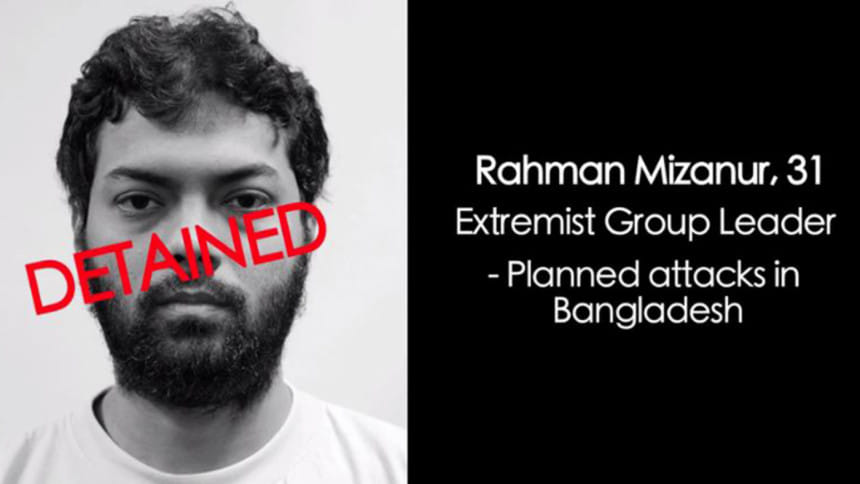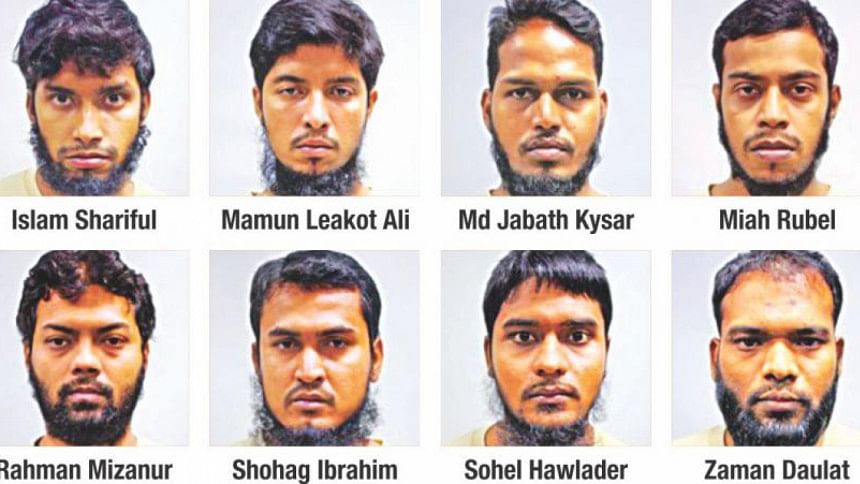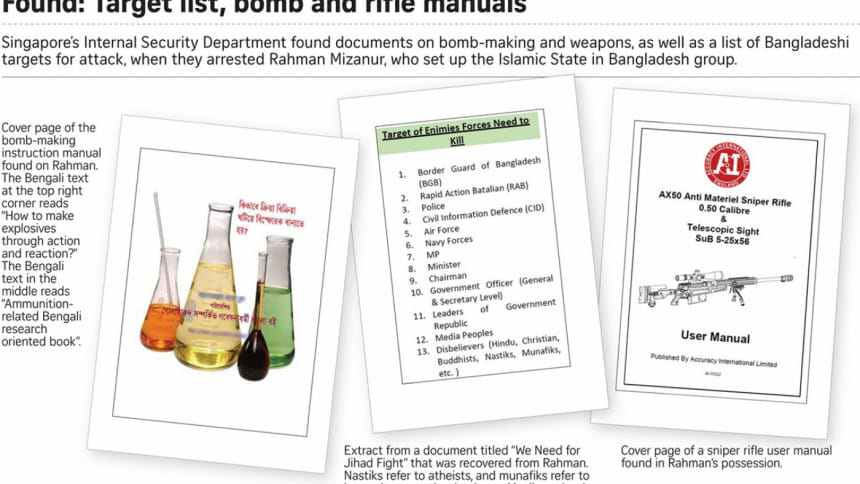Terror cell 'unfazed' by earlier arrests

Around the time that Singapore announced in January the arrest and deportation of 27 radicalised Bangladeshis under the Internal Security Act (ISA), S-Pass holder Rahman Mizanur, 31, came up with plans for an extremist group and began recruiting his countrymen.
By the time he was arrested some three months later, Rahman, who worked in construction, had reached out to at least 14 others.
Yesterday, the Ministry of Home Affairs (MHA) announced that eight Bangladeshis, including Rahman, had been detained under the ISA, while at least two more members of the group are in Bangladesh.
Another five have been deported.
Also READ: Singapore detains 8 Bangladeshis
That Rahman started the Islamic State in Bangladesh at a time when he would have been aware of strong security action shows how deeply radicalised and hardened he and those he roped in are, said senior analyst Jasminder Singh of the International Centre for Political Violence and Terrorism Research.

"The security of Singapore comes into question: What if they receive instructions to launch an attack on the Bangladeshi High Commission here?" he said.

The recent arrests of another group of Bangladeshi workers show that ISIS and its terrorist ideology continue to pose a serious threat.
Our experience with Bangladeshi workers has been positive. Many volunteer their time and effort at our mosques together with other local volunteers. Mosques will continue to welcome Muslims of all backgrounds and nationalities to programmes and classes conducted by recognised religious teachers. Official Eid sermons prepared by Muis are translated into languages such as English, Tamil and Bengali, to help congregants appreciate a progressive and contextual understanding of Islam in Singapore.
Muis is partnering with the Singapore Bangladesh Society to explore further initiatives to support Bangladeshi workers in their socio-religious life and to integrate them into our local community.
Finally, Muis reiterates its call for the Singapore Muslim community to remain vigilant and not let any teachings that promote violence and extremism take root in our society.
THE ISLAMIC RELIGIOUS COUNCIL OF SINGAPORE (MUIS), in a statement issued yesterday.

The MHA said that while there were no specific indications that Singapore was a target of the group, Rahman had said he would carry out an attack "anywhere" if so instructed by the Islamic State in Iraq and Syria (ISIS).
Singh added that, unlike the previous 27 men held and deported, this newer group appears to have been more organised and active.
The ministry said materials found in Rahman's possession included a document titled "We Need for Jihad Fight" that listed MPs, ministers, and media and military workers in Bangladesh as enemy targets.

Bashar, who is Bangladeshi, said local extremist and terror groups in Bangladesh have been "reinvigorated" by the rise of ISIS, and a growing number have bought into its idea of a global Islamic caliphate in recent years.
The country has also become more polarised and anti-secular in recent years. And while the Bangladeshi government denies that ISIS has a presence in the country, the latest issue of ISIS magazine Dabiq has a profile of a Bangladeshi fighter who died in Syria, and an interview with Abu Ibrahim al-Hanif, the "amir" or leader of ISIS in Bangladesh.
"That there is an amir means there is a leader and organisational structure," said Singh. "They are in contact with ISIS central command, which importantly means funding, but also that cells have to follow their orders."
Observers note that affordable smartphones and Internet access have helped Bangladeshis abroad keep up with goings-on at home, but technology has also exposed a segment of the diaspora to extremist teachings and terror manuals.
"Online extremist material in Bengali has created an open and conducive space for the rapid indoctrination of the diaspora and formation of overseas cells," said Bashar.
The Singapore authorities should consider blocking access to radical Bengali websites, he added.

 For all latest news, follow The Daily Star's Google News channel.
For all latest news, follow The Daily Star's Google News channel. 




Comments